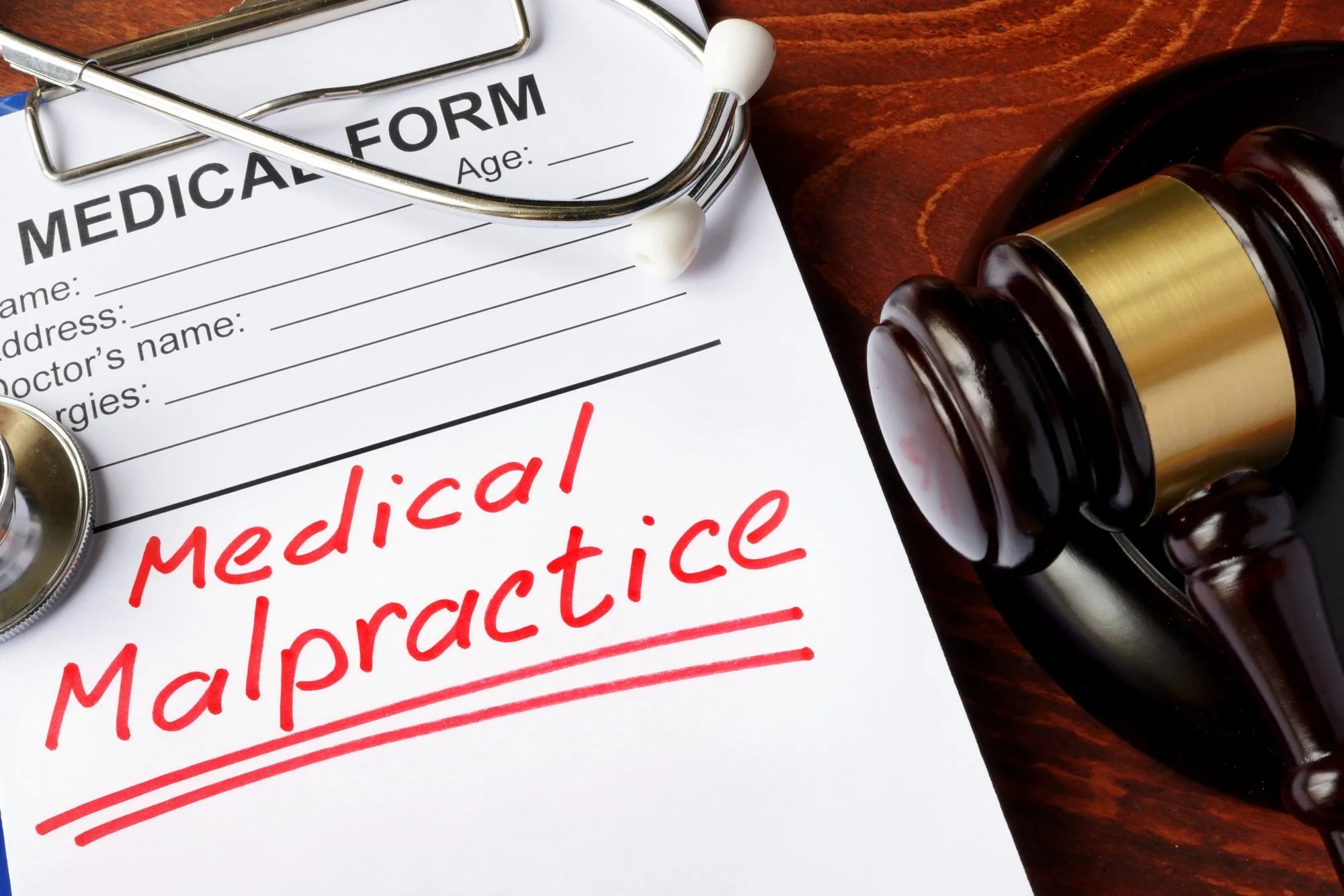A hospital stay at any time can in itself be a daunting process. However, if you are going in for a routine operation, you feel more in control as you know with bedrest you will be out in a few days and back home. However, it never really enters our thought process that something could go really wrong, leaving you with life-changing injuries. Luckily, mistakes are few and far between, but unfortunately, negligence and malpractice do happen within hospitals and care environments.
What is medical negligence and malpractice?
They are when care for a patient has not been given to the highest standards. Negligence is more about when carers and staff within the hospital or care environment have been negligent and errors have occurred during such things as routine operations. Negligence can also come in the form of misdiagnosis – for example failing to diagnose cancer. Malpractice is more about when a staff member or caregiver within a hospital or care environment omits crucial care or medicine or causes injury to a patient.

Photo by Bermix Studio on Unsplash
Why has this happened?
Unfortunately, medical malpractice or negligence only happens for a few reasons. The first being when carers, hospital staff, or other medical professionals lack training, development, care, or knowledge. The next reason is down to staff being in environments where they are overstretched and overworked, not really getting any real-time for individual patient care or focus. The last reason is rare, but it is when care professionals set out to cause harm to their patients.
Opening up your thoughts and fears for the future
Being a victim of malpractice or negligence can be a scary time. You are left with thoughts rushing around your head, which will inevitably include – why me? Opening up to friends and family about your thoughts and feelings (both negative and positive) is important on the journey to recovery and forgiveness. Although you may worry about what the future holds, talking about it will take away some of the fear and anxiety that surrounds the weeks and months ahead.
Getting it all out there

Photo by Hush Naidoo on Unsplash
Whether your experience is recent or maybe even a few years old it is still vitally important to let others know what you have experienced and what you are feeling. Sharing really is caring, and out there are other people who are going through what you have been through so when you are ready why not open up and share your experiences, and share your feelings, use social media or use physical meetings to share what you have learned and experienced within your journey so far.
Mental Health
Negligence and malpractice leave you feeling mentally drained and exhausted, and for good reason, too. You have been through a lot. Constantly thinking about why it has happened to you is going to get you down very quickly, and before you know it you are on the slippery slide down into depression. Your mental health and well-being are very important, especially during this testing period.
So, take extra time for yourself, be kind to yourself, and don’t feel like you have to hold it together all the time. Recovery is a rollercoaster of emotions and feelings and being mentally strong is necessary to overcome even those darkest thoughts and emotions, which unfortunately you will feel at various stages.
To have strong mental wellbeing and health you need to put yourself first. Don’t be afraid to upset people or let people down. Now is your time. Time to focus on loving and caring for yourself again, even if things are a little different. This isn’t going to happen overnight, but you need to start doing small things for yourself, such as getting to bed early, having a nice drink with a good book, and catching up with old friends. 
Top Tips for Good Mental Health and Wellbeing
Practice meditation
Taking at least 10 minutes out of every day to meditate will leave you feeling fresh and rejuvenated. When you meditate you clear your head of any unnecessary thoughts and clutter.
Do a bit of exercise
Doing a little bit of daily exercise makes you feel good, and look good too. Exercise boosts your energy levels and it doesn’t have to be vigorous and high energy like spinning. You can do something gentler and relaxed like yoga or Pilates.
Cut down on caffeine

Photo by Roberto Nickson on Unsplash
Just a few cups of coffee or tea throughout the day will keep your mind racing all night, so cut down on your caffeine intake during the day to help aid your sleep at night.
Take a daily bath or shower
Having some time for yourself at the start or end of the day is a fantastic mood booster.
Eat and drink well
Drinking more water and less alcohol is definitely the way to go. Eating a balanced and nutritious diet helps too as it will make you feel good.
Cut down on stress
Anxiety and stress add nothing positive to your day, so get rid of them.
Get 8 hours of sleep
Too little sleep or broken sleep can leave you feeling drained and washed out, so get at least 8 hours of sleep every day. 
Less screen time
Turning off your TV, tablet, phone or any other screen in your home is the best way to disconnect from the outside world. Giving yourself a break or detox and being more disconnected is beneficial for you as it gives you time to think.
Support Groups
There are people that have been through what you are going through, maybe they are going through it on their own or with family, whatever their circumstances, and whatever your circumstances, forming or joining a support group will give you strength and power. Together people can achieve, share and conquer more than if they are trying to tackle everything on their own. Try to find a physical or virtual support group that you can join.
If there is nothing that appeals to you or nothing that fits with what you want out of a group, then create your own. Creating a group can provide you with focus, direction, and a welcome distraction from everything else that is going on right now in your life.
Get focus and direction in your life
Some days might be easier to get through than others, and there will be times when you feel like giving up completely, but you must not. You must change the direction your life is going in, and create new projects to focus on. If you wanted to go traveling but have been putting it off, well don’t put it off any longer. Want to emigrate, learn a new language or just spend more time with family and friends? Focus on what is important to you and what makes you truly happy. Focusing on a new project will give you direction and purpose and it will reignite that passion that you have for life that might have been missing for a while.
Taking things further

Zerbor/Shutterstock
If you simply cannot let go and or do not wish to (you don’t have to of course), then you may wish to get a lawyer involved, to pursue a claim. A lawyer with expertise in negligence and malpractice can help get the cost of treatment covered, among other things. If you wish to find a lawyer, here are some things you need to know:
Choosing a Lawyer – Top 10 Tips
- Do they care about you and your claim? If they don’t care now then unfortunately they never will. If they are money-motivated, they are probably not the right lawyer to have on your side. You want to find a lawyer who is passionate about change so that you can work together to possibly set about changing what happens with the care and/or hospital environments when things don’t go according to plan.
- Have they got relevant experience? If they are experienced in negligence or malpractice cases it will make the whole process a lot simpler and quicker as they will know what needs doing and when.
- Are they local? Potentially having a lawyer close at hand is more beneficial than one who is on the other side of the country. Being able to meet up with your lawyer to discuss your case and the claim can feel better than virtual meetings where they might not be fully interested or invested.

Photo by Sora Shimazaki from Pexels
- Cheap isn’t cheerful. The saying that cheap is cheerful doesn’t really apply here. A good lawyer is worth their weight in gold. The help, advice, guidance, and end result they provide makes them worth every penny.
- What are their reviews and recommendations saying? Do they have positive reviews? If they have more negative reviews than positive ones, then probably it’s best that you avoid them at all costs.
- What is their availability? If a lawyer is immediately available then that is a big red flag. Lawyers who are readily available are often not the best ones to hire. On the flip-side, lawyers that are too busy will not have a real interest in your case or cause.
- Are they responsive? Do they respond to emails and phone calls in a timely manner, or do they keep you waiting for days on end? Timely responses to any questions or queries you may have are a must when finding the right lawyer for you.
- How can you pay them and when do they take payment? Do they operate a pay as you go scheme, or do they take their payment and commission out of any figure you receive as a pay-out.
- Are they winners? How many cases or claims have they won (and more importantly how recent were these wins). If they have lost more than they have won then they are probably not the right lawyers for you.
- How big or small is the firm? Is the firm too large to care about your claim? In big firms, they can often pass cases on internally to suit availability. On the flip-side with small firms, they often can’t take on too many new cases, so you might be waiting to have your day in court (as they say).
Moving on, where to next – the silver lining
If you have decided to make a claim and have been successful, what would you like to do next? There are lots of opportunities to help and support other people going through similar experiences. Would this help you on your recovery journey? If you have not yet started a claim then why not? What is holding you back? Anything or nothing? Once you have decided what you want to do you can then move onwards and upwards. It is important to know what you want to do both in the short term and long term. This will provide structure and focus to your life.




![women [longevity live]](https://longevitylive.com/wp-content/uploads/2020/01/photo-of-women-walking-down-the-street-1116984-100x100.jpg)










